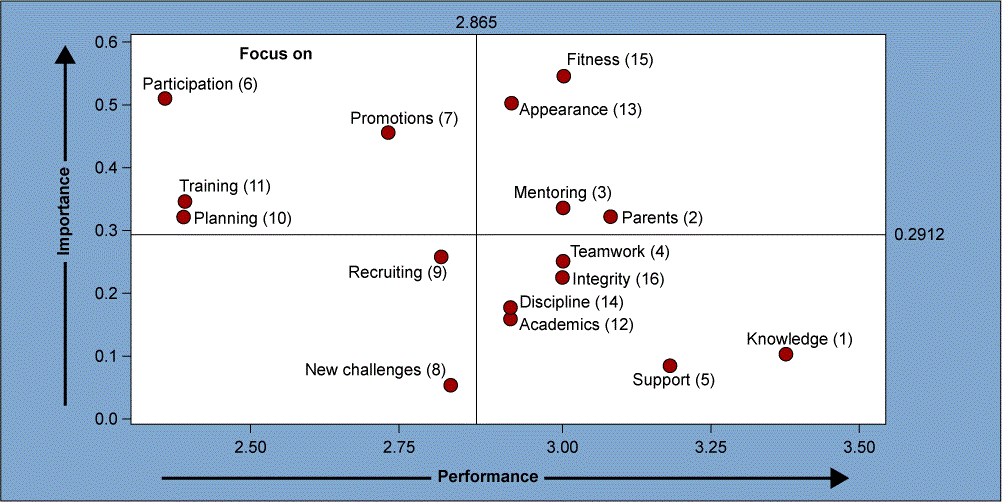Tag: transactional

Using Censored Data in Transactional Processes
Updated:Censored data is commonly used in reliability studies to determine the mean time to failure in order to establish warranty and maintenance periods for products. A large number of samples are subjected to either normal-use or accelerated-use conditions. Failure modes and occurrences are logged. Plotting the distribution of the sample failures over time allows the […]
Read more »
Six Lessons for Deploying a BPM Workflow Product in a Transactional Environment
Published:Complex, multi-team processes in transactional operations can often be almost invisible in operation and execution – until, that is, something goes wrong. Transactional process failures are common: failed online transactions, payments not made on time, double bookings and lost orders are frequently encountered errors. These processes often involve manual tasks and multiple unconnected systems, are […]
Read more »
Harvesting Value in Transactional Processes with Lean Six Sigma
Published:While transactional processes might require a different approach, the Lean Six Sigma tools you use are the same. Follow this sequence of five tools to begin fixing your invisible problems before they reach your customers.
Read more »
What Manufacturers Can Learn from Transactional Companies
Published:In the evolution of continuous improvement, the Six Sigma methodology began in the manufacturing sector and later spread to other transactional businesses. While many transactional companies, such as advertising agencies and other service-oriented organizations, still look to manufacturers to learn about the application of Lean Six Sigma, there are lessons that manufacturers can learn, as […]
Read more »
Measurement Systems Analysis in Process Industries
Published:The gage R&R study is the standard tool in the Six Sigma process improvement methodology to evaluate the adequacy of a measurement system with regard to measurement variability. While it is well established and widely used in the discrete manufacturing industry, it is less useful in process industries where the nature of measurements is different, […]
Read more »
Trusting the Data: Gage R&R in Transactional Projects
Published:An essential component of any Six Sigma project is the gage R&R step conducted during the Measure phase. Traditional training will cover the full analysis of variance (ANOVA) of a set of continuous data, an attribute gage R&R for discrete data and the destructive gage R&R. Since it is sometimes difficult to apply these tools […]
Read more »
Mining for Lost Gold in the Transactional Environment
Published:Searching for lost gold in the transactional environments that are major components of all organizations is a Six Sigma imperative. A number of ways are available for successfully mining transactional processes, thereby reaping significant savings. Transactional- or service-focused Black Belts and Green Belts address problems which center on the elimination of process chaos. Transactional chaos […]
Read more »
Overcoming the Challenges to Project Realization
Published:Black Belt project would end with a concise set of action items being turned over to the transition owner who would then swiftly implement them and achieve the desired results. But for many Six Sigma practitioners in transactional environments, simply handing off the project does not guarantee that the gains will be realized. Even in […]
Read more »
DOE for Services: Right Training Makes It a Valuable Tool
Published:When it comes to mastering design of experiments, there can be a steep learning curve. Through a DOE simulation, trainees can get firsthand experience applying DOE concepts, learning how to set up the experimental design and how to interpret its results.
Read more »
Using Quadrant Plots to Improve Program Performance
Published:When assessing areas of satisfaction within a company’s improvement program, a quadrant plot comparing importance versus performance of those areas can visually show Six Sigma project leaders where they should focus their efforts.
Read more »
People Complexity Can Require a Special Roadmap
Published:The DMAIC toolkit is excellent for solving technical complexity problems. However, you may have noticed that Lean Six Sigma is not as adept at helping solve people problems. The solution is an integrated DMIAC/change management roadmap.
Read more »
Minimizing Risks: How to Apply FMEA in Services
Published:It will probably come as little surprise that something called failure modes and effects analysis (FMEA) evolved at the National Aeronautics and Space Administration, an environment where the interest in preventing failures is extremely high. FMEA was later popularized by the automobile industry and in recent years has become more widespread among Six Sigma practitioners. […]
Read more »
Turning Judgment Calls into Reliable Data with Gage R&R
Published:One of the biggest challenges in making improvements in transactional processes is getting data which can be relied upon. There is an abundance of categorical data in transactional areas – situations where a judgment call is required: Is something right or wrong? Is the application complete? What type of error was made on the request […]
Read more »
Examples of Strategies for Healthcare and Other Services
Published:Six Sigma has been used extensively in improving manufacturing organizations, but only relatively recently has it been used to improve processes outside the manufacturing arena. In our book Six Sigma Beyond the Factory Floor, my co-author, Dr. Ronald D. Snee, and I examine process improvement in the rest of the economy, such as financial services, […]
Read more »
Calculating Process Efficiency in Transactional Projects
Published:The principles of Lean manufacturing are applicable to any business process. This article reviews some of the common problems seen in transactional projects and outlines an example where simple graphical methods are used to interpret cycle time data. Identifying and characterizing the non-Lean processes facilitates the application of 5S, brainstorming and other improvement tools with […]
Read more »